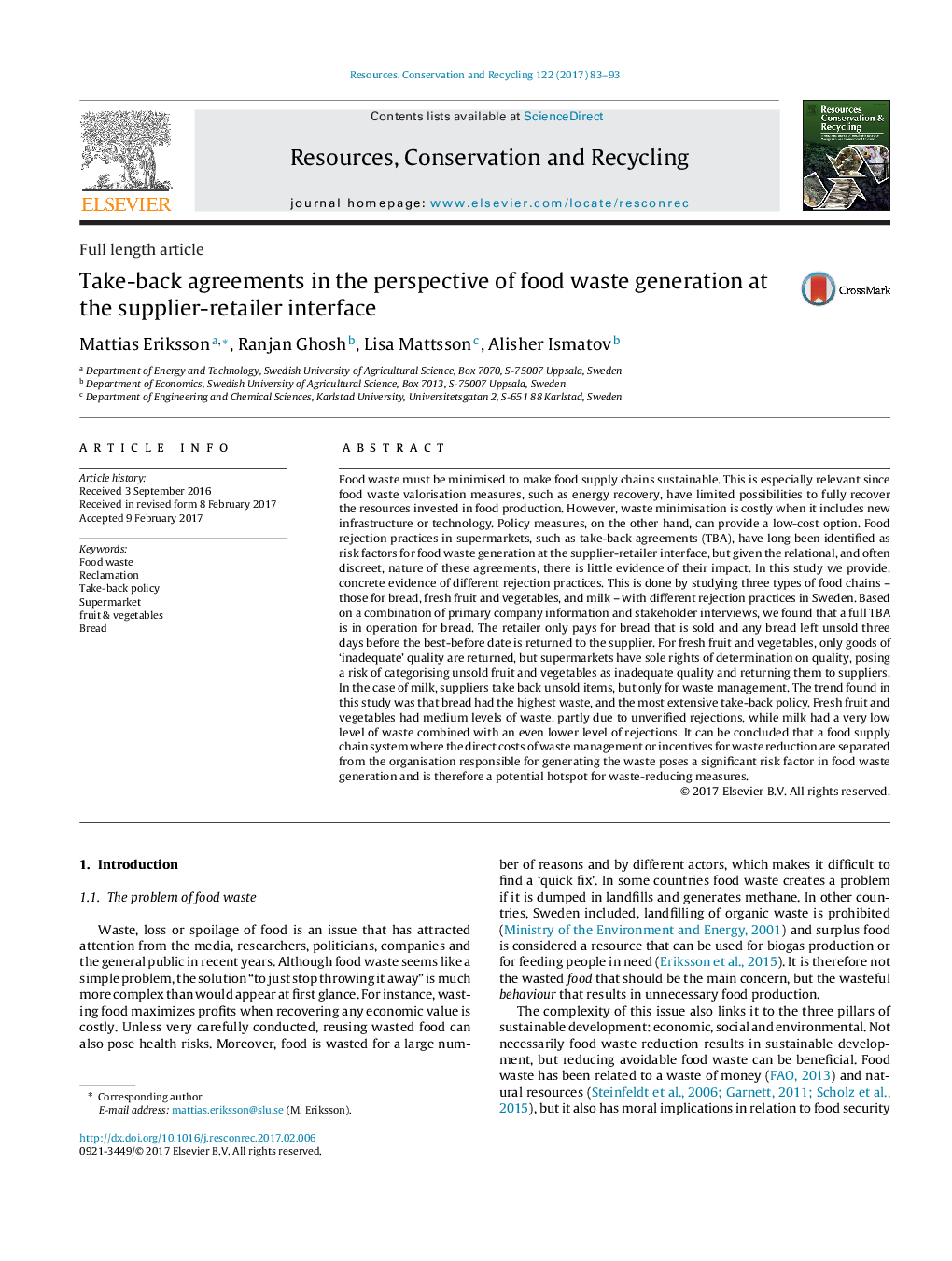| کد مقاله | کد نشریه | سال انتشار | مقاله انگلیسی | نسخه تمام متن |
|---|---|---|---|---|
| 5118779 | 1485670 | 2017 | 11 صفحه PDF | دانلود رایگان |
عنوان انگلیسی مقاله ISI
Take-back agreements in the perspective of food waste generation at the supplier-retailer interface
ترجمه فارسی عنوان
توافقنامه های عقب افتادگی در دیدگاه تولید زباله های مواد غذایی در رابط تامین کننده و خرده فروش
دانلود مقاله + سفارش ترجمه
دانلود مقاله ISI انگلیسی
رایگان برای ایرانیان
کلمات کلیدی
زباله های مواد غذایی، احیاء مجدد، سیاست بازپرداخت، سوپر مارکت، میوه و سبزیجات، نان،
موضوعات مرتبط
مهندسی و علوم پایه
مهندسی انرژی
انرژی های تجدید پذیر، توسعه پایدار و محیط زیست
چکیده انگلیسی
Food waste must be minimised to make food supply chains sustainable. This is especially relevant since food waste valorisation measures, such as energy recovery, have limited possibilities to fully recover the resources invested in food production. However, waste minimisation is costly when it includes new infrastructure or technology. Policy measures, on the other hand, can provide a low-cost option. Food rejection practices in supermarkets, such as take-back agreements (TBA), have long been identified as risk factors for food waste generation at the supplier-retailer interface, but given the relational, and often discreet, nature of these agreements, there is little evidence of their impact. In this study we provide, concrete evidence of different rejection practices. This is done by studying three types of food chains - those for bread, fresh fruit and vegetables, and milk - with different rejection practices in Sweden. Based on a combination of primary company information and stakeholder interviews, we found that a full TBA is in operation for bread. The retailer only pays for bread that is sold and any bread left unsold three days before the best-before date is returned to the supplier. For fresh fruit and vegetables, only goods of 'inadequate' quality are returned, but supermarkets have sole rights of determination on quality, posing a risk of categorising unsold fruit and vegetables as inadequate quality and returning them to suppliers. In the case of milk, suppliers take back unsold items, but only for waste management. The trend found in this study was that bread had the highest waste, and the most extensive take-back policy. Fresh fruit and vegetables had medium levels of waste, partly due to unverified rejections, while milk had a very low level of waste combined with an even lower level of rejections. It can be concluded that a food supply chain system where the direct costs of waste management or incentives for waste reduction are separated from the organisation responsible for generating the waste poses a significant risk factor in food waste generation and is therefore a potential hotspot for waste-reducing measures.
ناشر
Database: Elsevier - ScienceDirect (ساینس دایرکت)
Journal: Resources, Conservation and Recycling - Volume 122, July 2017, Pages 83-93
Journal: Resources, Conservation and Recycling - Volume 122, July 2017, Pages 83-93
نویسندگان
Mattias Eriksson, Ranjan Ghosh, Lisa Mattsson, Alisher Ismatov,
